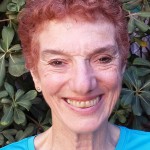My reading
Haftarah Parashat T’tzavveh
Ezekiel 43:10 - 27
43:10 אַתָּ֣ה בֶן־אָדָ֗ם הַגֵּ֤ד אֶת־בֵּֽית־יִשְׂרָאֵל֙ אֶת־הַבַּ֔יִת וְיִכָּלְמ֖וּ מֵעֲוֹנֽוֹתֵיהֶ֑ם וּמָדְד֖וּ אֶת־תָּכְנִֽית׃
43:11 וְאִֽם־נִכְלְמ֞וּ מִכֹּ֣ל אֲשֶׁר־עָשׂ֗וּ צוּרַ֣ת הַבַּ֡יִת וּתְכוּנָת֡וֹ וּמוֹצָאָ֡יו וּמוֹבָאָ֣יו וְֽכָל־צֽוּרֹתָ֡ו וְאֵ֣ת כָּל־חֻקֹּתָיו֩ וְכָל־צורתי [צ֨וּרֹתָ֤יו] וְכָל־תורתו [תּוֹרֹתָיו֙] הוֹדַ֣ע אוֹתָ֔ם וּכְתֹ֖ב לְעֵֽינֵיהֶ֑ם וְיִשְׁמְר֞וּ אֶת־כָּל־צוּרָת֛וֹ וְאֶת־כָּל־חֻקֹּתָ֖יו וְעָשׂ֥וּ אוֹתָֽם׃
43:12 זֹ֖את תּוֹרַ֣ת הַבָּ֑יִת עַל־רֹ֣אשׁ הָ֠הָר כָּל־גְּבֻל֞וֹ סָבִ֤יב׀ סָבִיב֙ קֹ֣דֶשׁ קָדָשִׁ֔ים הִנֵּה־זֹ֖את תּוֹרַ֥ת הַבָּֽיִת׃
43:13 וְאֵ֨לֶּה מִדּ֤וֹת הַמִּזְבֵּ֙חַ֙ בָּֽאַמּ֔וֹת אַמָּ֥ה אַמָּ֖ה וָטֹ֑פַח וְחֵ֨יק הָאַמָּ֜ה וְאַמָּה־רֹ֗חַב וּגְבוּלָ֨הּ אֶל־שְׂפָתָ֤הּ סָבִיב֙ זֶ֣רֶת הָאֶחָ֔ד וְזֶ֖ה גַּ֥ב הַמִּזְבֵּֽחַ׃
43:14 וּמֵחֵ֨יק הָאָ֜רֶץ עַד־הָעֲזָרָ֤ה הַתַּחְתּוֹנָה֙ שְׁתַּ֣יִם אַמּ֔וֹת וְרֹ֖חַב אַמָּ֣ה אֶחָ֑ת וּמֵהֳעֲזָרָ֨ה הַקְּטַנָּ֜ה עַד־הָעֲזָרָ֤ה הַגְּדוֹלָה֙ אַרְבַּ֣ע אַמּ֔וֹת וְרֹ֖חַב הָאַמָּֽה׃
43:15 וְהַֽהַרְאֵ֖ל אַרְבַּ֣ע אַמּ֑וֹת ומהאראיל [וּמֵהָאֲרִיאֵ֣ל] וּלְמַ֔עְלָה הַקְּרָנ֖וֹת אַרְבַּֽע׃
43:16 והאראיל [וְהָאֲרִיאֵ֗ל] שְׁתֵּ֤ים עֶשְׂרֵה֙ אֹ֔רֶךְ בִּשְׁתֵּ֥ים עֶשְׂרֵ֖ה רֹ֑חַב רָב֕וּעַ אֶ֖ל אַרְבַּ֥עַת רְבָעָֽיו׃
43:17 וְהָעֲזָרָ֞ה אַרְבַּ֧ע עֶשְׂרֵ֣ה אֹ֗רֶךְ בְּאַרְבַּ֤ע עֶשְׂרֵה֙ רֹ֔חַב אֶ֖ל אַרְבַּ֣עַת רְבָעֶ֑יהָ וְהַגְּבוּל סָבִ֨יב אוֹתָ֜הּ חֲצִ֣י הָאַמָּ֗ה וְהַֽחֵיק־לָ֤הּ אַמָּה֙ סָבִ֔יב וּמַעֲלֹתֵ֖הוּ פְּנ֥וֹת קָדִֽים׃
43:18 וַיֹּ֣אמֶר אֵלַ֗י בֶּן־אָדָם֙ כֹּ֤ה אָמַר֙ אֲדֹנָ֣י יְהוִ֔ה אֵ֚לֶּה חֻקּ֣וֹת הַמִּזְבֵּ֔חַ בְּי֖וֹם הֵעָֽשׂוֹת֑וֹ לְהַעֲל֤וֹת עָלָיו֙ עוֹלָ֔ה וְלִזְרֹ֥ק עָלָ֖יו דָּֽם׃
43:19 וְנָתַתָּ֣ה אֶל־הַכֹּהֲנִ֣ים הַלְוִיִּ֡ם אֲשֶׁ֣ר הֵם֩ מִזֶּ֨רַע צָד֜וֹק הַקְּרֹבִ֣ים אֵלַ֗י נְאֻ֛ם אֲדֹנָ֥י יְהוִ֖ה לְשָֽׁרְתֵ֑נִי פַּ֥ר בֶּן־בָּקָ֖ר לְחַטָּֽאת׃
43:20 וְלָקַחְתָּ֣ מִדָּמ֗וֹ וְנָ֨תַתָּ֜ה עַל־אַרְבַּ֤ע קַרְנֹתָיו֙ וְאֶל־אַרְבַּע֙ פִּנּ֣וֹת הָעֲזָרָ֔ה וְאֶֽל־הַגְּב֖וּל סָבִ֑יב וְחִטֵּאתָ֥ אוֹת֖וֹ וְכִפַּרְתָּֽהוּ׃
43:21 וְלָ֣קַחְתָּ֔ אֵ֖ת הַפָּ֣ר הַֽחַטָּ֑את וּשְׂרָפוֹ֙ בְּמִפְקַ֣ד הַבַּ֔יִת מִח֖וּץ לַמִּקְדָּֽשׁ׃
43:22 וּבַיּוֹם֙ הַשֵּׁנִ֔י תַּקְרִ֛יב שְׂעִיר־עִזִּ֥ים תָּמִ֖ים לְחַטָּ֑את וְחִטְּאוּ֙ אֶת־הַמִּזְבֵּ֔חַ כַּאֲשֶׁ֥ר חִטְּא֖וּ בַּפָּֽר׃
43:23 בְּכַלּוֹתְךָ֖ מֵֽחַטֵּ֑א תַּקְרִיב֙ פַּ֣ר בֶּן־בָּקָ֣ר תָּמִ֔ים וְאַ֥יִל מִן־הַצֹּ֖אן תָּמִֽים׃
43:24 וְהִקְרַבְתָּ֖ם לִפְנֵ֣י יְהוָ֑ה וְהִשְׁלִ֨יכוּ הַכֹּהֲנִ֤ים עֲלֵיהֶם֙ מֶ֔לַח וְהֶעֱל֥וּ אוֹתָ֛ם עֹלָ֖ה לַֽיהוָֽה׃
43:25 שִׁבְעַ֣ת יָמִ֔ים תַּעֲשֶׂ֥ה שְׂעִיר־חַטָּ֖את לַיּ֑וֹם וּפַ֧ר בֶּן־בָּקָ֛ר וְאַ֥יִל מִן־הַצֹּ֖אן תְּמִימִ֥ים יַעֲשֽׂוּ׃
43:26 שִׁבְעַ֣ת יָמִ֗ים יְכַפְּרוּ֙ אֶת־הַמִּזְבֵּ֔חַ וְטִֽהֲר֖וּ אֹת֑וֹ וּמִלְא֖וּ ידו [יָדָֽיו]׃
43:27 וִֽיכַלּ֖וּ אֶת־הַיָּמִ֑ים וְהָיָה֩ בַיּ֨וֹם הַשְּׁמִינִ֜י וָהָ֗לְאָה יַעֲשׂ֨וּ הַכֹּהֲנִ֤ים עַל־הַמִּזְבֵּ֙חַ֙ אֶת־עוֹלֽוֹתֵיכֶם֙ וְאֶת־שַׁלְמֵיכֶ֔ם וְרָצִ֣אתִי אֶתְכֶ֔ם נְאֻ֖ם אֲדֹנָ֥י יְהֹוִֽה׃










